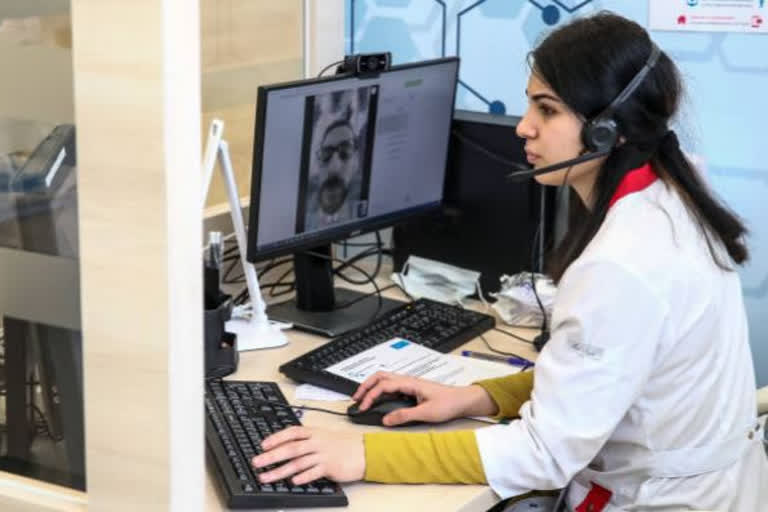Hyderabad: As people across the globe have been put under lockdown, restricting movement and social meetings after the coronavirus outbreak, telemedicine has started gaining immense popularity as it is helping patients connect with doctors by means of telecommunications technology.
According to an international journal, Lee H. Schwamm, MD, Director of the Center for TeleHealth at Massachusetts General Hospital and Vice President of Virtual Care at Partners Healthcare, and his colleagues believes that virtual care, by eliminating the barriers of time and distance, is very useful for providing care that is patient-centred, lower cost, more convenient than traditional methods for delivering care, especially during a pandemic.
Lee H. Schwamm, MD, Center for TeleHealth; Vice President of Virtual Care suggests that it is important for health systems to reap the benefits of this digital innovation to redesign inpatient and ambulatory care delivery now and in the near future.
The journal describes the scope and reach of the virtual care innovation introduced at Partners Healthcare and also provides guidance to other health care systems on implementing virtual care tools. It also provides guidance to address challenges to their use during and after the pandemic.
In Lancet Digital Health, Dr Schwamm and co-authors mention about two innovations in virtual care delivery for hospitalised patients: virtual rounds and a virtual intercom communication system.
Virtual rounds seek to redesign traditional medical rounds, where large numbers of health care workers are frequently huddled together around a computer screen or test result to discuss treatment options.
The virtual intercom communication system allows clinicians to monitor and communicate with patients over video screens from anywhere in the hospital and present a human face to isolated patients whose only other personal contact is typically with providers who are fully gowned, masked and gloved.
"These approaches have allowed us to deliver exceptional care during a time of mass contagion, while preserving personal protective equipment in short supply, reducing exposure time of staff and engaging in compassionate and reassuring encounters over video sessions whenever care is required," said Dr Schwamm.
Also Read: COVID-19: FDA issues new guidelines to speed up development of treatment options



